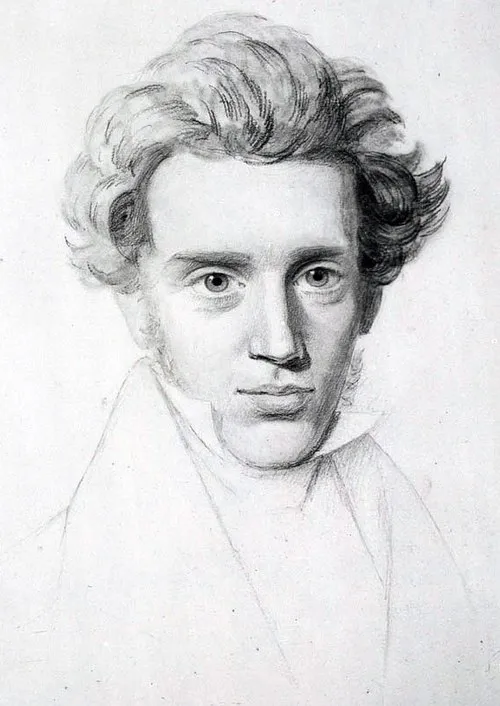
Søren Kierkegaard: The Father of Existentialism and His Influence on the Lutheran Church
Søren Kierkegaard, born on May 5, 1813, in Copenhagen, Denmark, is often regarded as the father of existentialism. His philosophical writings, deeply rooted in Christian theology, have significantly influenced modern theology and the Lutheran Church. Kierkegaard's reflections on faith, existence, and individuality remain relevant, prompting scholars and theologians to explore his insights in the contemporary world.
The Context of Kierkegaard's Life
Kierkegaard was raised in a devout Lutheran family. His father, Michael Kierkegaard, was a strict, religious man who profoundly influenced his son's spiritual and intellectual development. This upbringing familiarized Kierkegaard with Christian doctrine but also instilled in him a sense of existential anxiety and a quest for authentic faith.
Kierkegaard's Philosophical Contributions
Central to Kierkegaard's philosophy is the concept of the 'leap of faith,' which signifies the individual's journey toward God. Unlike systematic theology, Kierkegaard emphasized subjective experience and personal relationship with God. He argued that objective truths about existence could not adequately define one's relationship with the divine. Instead, he promoted the idea that faith is an individual journey, heavily laden with risks and uncertainties.
Stages of Life
Kierkegaard outlined different stages of life: the aesthetic, the ethical, and the religious. The aesthetic stage is characterized by the pursuit of pleasure and avoidance of commitment, while the ethical stage involves responsibility and moral choices. The highest stage, the religious, centers on the individual's relationship with God, ultimately culminating in a personal leap of faith.
The Role of Anxiety
Another critical aspect of Kierkegaard’s thought is the concept of anxiety, which he described as the feeling of dread that emerges when individuals confront their freedom and the responsibility that comes with it. Kierkegaard believed that anxiety is a natural part of the human condition and can lead to a deeper understanding of oneself and, ultimately, to a more profound faith.
Kierkegaard and the Lutheran Church
Kierkegaard's exploration of Christianity diverged from conventional Lutheran teachings. He critiqued the state church in Denmark, arguing that it had become too institutionalized and complacent. He believed that true faith requires a personal and often painful journey toward understanding and accepting Christ.
His reflections on the 'single individual' challenge the collective mentality often found within institutionalized religion. For Kierkegaard, every person must wrestle with their faith in isolation, as salvation cannot be mediated through tradition or communal worship. This perspective resonates within the Lutheran Church’s emphasis on individual interpretation of Scripture and personal faith.
Legacy and Influence
Kierkegaard's ideas laid the foundation for existentialism and influenced later philosophers, theologians, and writers. His works, such as 'Fear and Trembling' and 'Either/Or', continue to be studied for their exploration of faith, existence, and ethics. Furthermore, Kierkegaard's emphasis on the individual's relationship with God resonates in contemporary theological discussions, particularly within the Lutheran tradition.
In modern times, Kierkegaard's thoughts have also influenced various movements within the Lutheran Church, promoting a more personal and dynamic understanding of faith that challenges members to engage deeply with their beliefs. His call for individuals to embrace their existential struggles remains pertinent in today's world, where many grapple with questions of meaning and purpose amid societal challenges.
Conclusion
Søren Kierkegaard's profound impact on philosophy and theology, especially within the Lutheran Church, is undeniable. By emphasizing the importance of personal faith and the individual's relationship with God, he has encouraged many to embark on their spiritual journeys, often filled with complexity and doubt. His legacy continues to inspire existential inquiry and deepen the understanding of what it means to live authentically in faith.






